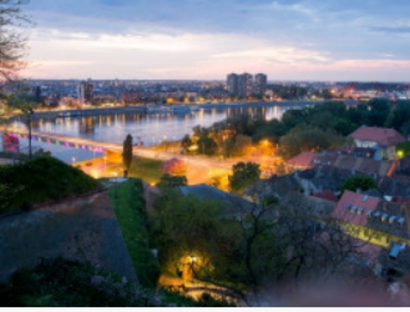
Set up in 2016 with €250 million and expanded in 2018 by a further €700 million of EBRD funds, EBRD Green Cities has mobilised significant co-finance, including €87 million from the Green Climate Fund (GCF) for concessional funding, as well as technical cooperation from the GCF and several bilateral donors. With the new funding, more than €2 billion will be dedicated to supporting EBRD Green Cities.
The successful program has already grown to include 43 cities and aims to expand to 100 by 2024.
Addressing climate change and environmental degradation is urgent. Cities worldwide are the source of at least three-quarters of emissions, making them a vital starting-point in tackling climate change. This is particularly true of cities in the EBRD regions – central and eastern Europe, Central Asia and the Southern and Eastern Mediterranean - where obsolete urban infrastructure is often degrading the quality of life of citizens, increasing greenhouse gas emissions, and preventing communities from adapting to climate change.
EBRD Green Cities offers tangible support to help cities address their environmental issues and improve the quality of life of their residents. All participating cities embark on a trigger project to improve their local environment then, with EBRD help, work on a Green City Action Plan (GCAP) to create a tailor-made list of further environmental investments and policy actions most suitable to address their environmental challenges.
The program also makes a major contribution to tackling climate change: Achieving the 2015 Paris Agreement goal of keeping global temperature rises below 2C, and preferably below the more ambitious target of 1.5C, could be achieved if the world can have net-zero greenhouse gas emissions by 2050. To achieve this, we must significantly reduce emission from buildings, increase the efficiency of transport, and shift our electricity supply to be predominantly from renewable sources. Investment in urban infrastructure is the key to making this possible.
The November 2020 funding extension of EBRD Green Cities, which is available to all eligible cities across the EBRD regions, will continue to focus on improvements to the core urban sectors of urban transport, water and waste water, solid waste management, district energy, street lighting and low-carbon and climate-resilient buildings. It will also focus more on nature-based solutions, more effective integration of climate resilience and adaptation criteria, renewables, gender and inclusion work, smart technology solutions and urban regeneration, through an updated GCAP methodology.

